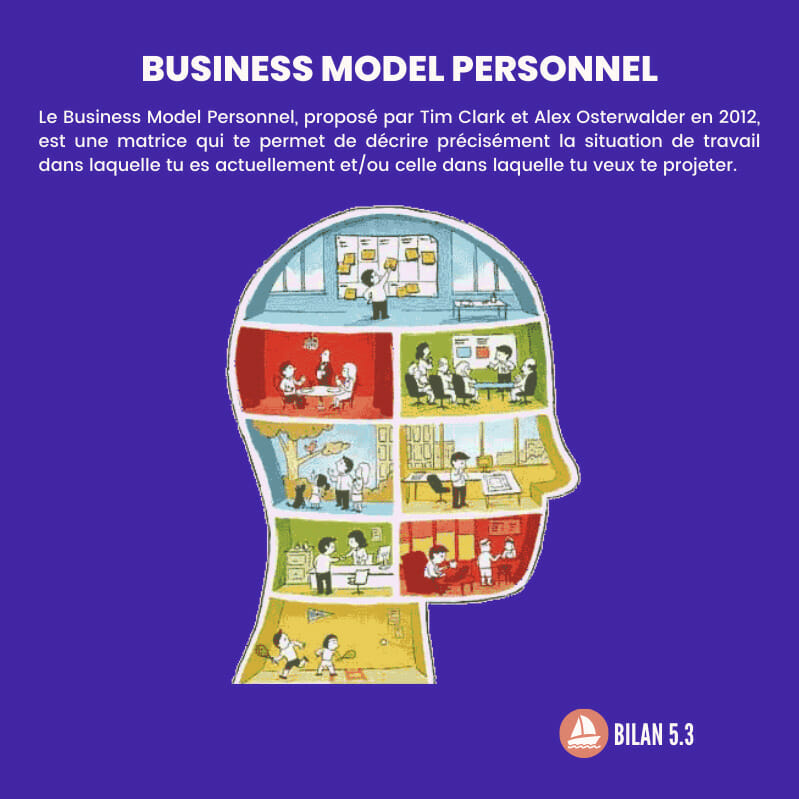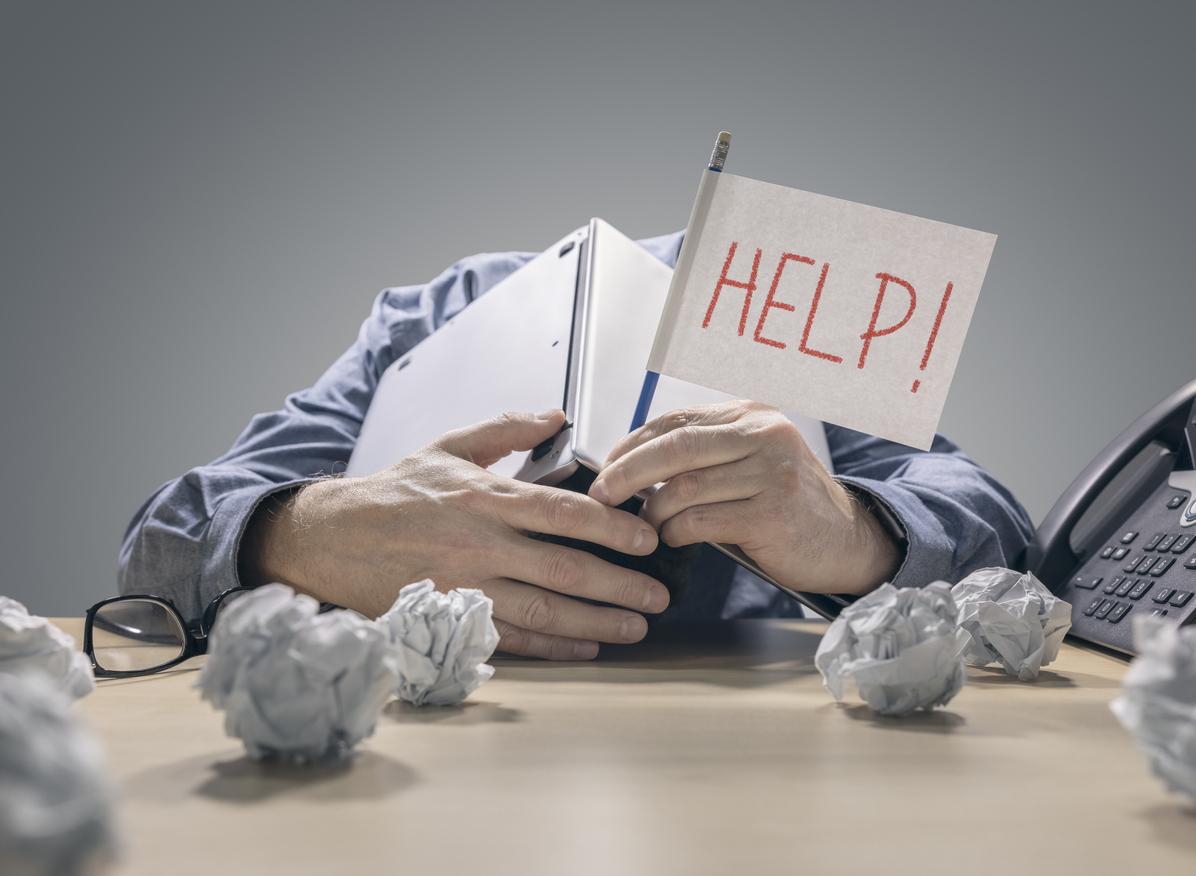
When the work becomes too much for you
In these modern times we all suffer from it: fatigue, stress and too much work that has to be done. But what if it starts to control your life so much that you can’t get to work anymore? Then you may have a burnout. And that cannot be solved by leaving some work behind. But by what?
Different occupational groups use different terms for diseases related to stress: overstrain, overstrain, chronic stress, adjustment disorder, surmenage, neurasthenia and burnout. GPs usually talk about overstrain and burnout.
What is a burnout?
Burnout is a form of exhaustion where you feel exhausted. You are so tired that you no longer function properly at work or at home. You can have all kinds of physical and psychological complaints. You have also been suffering from these complaints for more than six months.
Not all healthcare providers use the same definition of burnout. Moreover, not everyone who is ill due to stress goes to the doctor. There are therefore no reliable figures on the number of people with burnout. It is estimated that on January 1, 2011, there were patients diagnosed with neurasthenia/surmenage in general practice. This is 3.9 per 1,000 men and 7.2 per 1,000 women.
Causes of burnout
A little stress from an exciting event or challenging job is healthy, it keeps you sharp and alert. As long as you can relax enough afterwards. Problems arise if the demands placed on you (the carrying load) are too great for your carrying capacity. Long-term stress that you can’t deal with can lead to overstrain. Have you been overworked for more than six months and is fatigue and exhaustion paramount? Then we speak of a burnout.
Stress can be related to your work, but also to financial problems, having many obligations, a seriously ill person in your environment that you are caring for, the heavy combination of work, family and/or study. A major event such as a divorce, dismissal or loss of a loved one can be very stressful. Especially when all kinds of things are coming at you at once and you are worrying at night without finding a solution, overstrain is lurking.
Whether you get a burnout also depends on how you deal with stress. People with certain personality traits are more likely to get burned out, such as people who have trouble saying ‘no’, asking for help and expressing their feelings. Perfectionists and hard workers who are ambitious and very committed to their work are more likely to burn out. In addition, burnout is more common in certain professional groups, such as education.
Symptoms of a burnout
When you are stressed, you experience both psychological and physical complaints. For example, you may suffer from:
- worry.
- Bad sleeping.
- being irritable.
- A rushed feeling.
- Crying easily.
- Having trouble with crowds around you.
- A tense feeling.
- Not interested in anything.
- Concentration problems.
- Memory problems.
- Being physically and mentally tired.
- Headache.
- neck complaints.
- palpitations.
- Dizziness.
- Chestpain.
- Can’t see a solution anymore.
- Not functioning properly, at home and/or at work.
- Insecurity.
- Guilt feelings.
- Making lots of mistakes.
- No need for sex.
- Have little interest in social contacts.
- Stomach and intestinal complaints.
- to be anxious.
- Decreased resistance: always having a cold.
How is the diagnosis made?
If you have a number of the complaints mentioned above, the first step is to ask your doctor or – if your work is mainly the cause – the company doctor for advice. Based on your medical history and your complaints, this makes an assessment of whether you may be stressed or burned out.
The general practitioner or company doctor can also ask you to fill in a questionnaire to find out whether you are suffering from overstrain or burnout or whether there is something else going on. Physical or additional examinations are usually not necessary unless the doctor suspects that you also have another condition.
General practitioners and company doctors have agreed in a guideline when someone is diagnosed with burnout. According to this guideline, you are overstrained if you meet these four criteria:
- You have at least three of these complaints: fatigue, disturbed or restless sleep, irritability, inability to cope with crowds/noise, emotional lability, worrying, feeling rushed, concentration problems and/or forgetfulness.
- You experience loss of control or powerlessness: you no longer know how to tackle the causes of your stress, you can no longer handle it and you have the feeling that you are losing control.
- You are limited in your functioning, in your work or at home. You have therefore dropped one or more of your roles (employee, father/mother, etc.) for at least 50 percent.
- Your symptoms are not solely caused by a psychiatric disorder, such as depression.
According to this guideline, you have a burnout if you meet these three criteria:
- You are overwrought.
- The complaints started more than six months ago.
- Feelings of tiredness and exhaustion are strongly in the foreground.
Treating Burnout
Staying in bed all day won’t help with burnout. An active approach ensures a faster recovery. You can use the help of your general practitioner, the company doctor or a psychologist for this.
The first step in your recovery is to relax, realize that you are overwrought and accept that things are just not going to work for a while. You will probably have to call in sick at work during this phase and also put other activities and obligations on the back burner. Explain to your environment and at work that you have a burnout, then others will be more understanding if you cancel appointments, for example, which gives you some peace of mind.
Structure in your day
Doing nothing at all and sleeping a lot usually won’t make you feel better. Try to structure your day, such as getting up and going to sleep at set times, going outside every day and exercising for half an hour every day, even if it is just walking, cycling or messing around in your garden. Do things that you find fun and relaxing (or, if you no longer enjoy anything at all, activities that gave you energy before). You may like to write down your (worrying) thoughts and feelings in a journal. And talk to friends or family about your burnout, that often relieves the pressure.
When you have calmed down a bit, you can start to map out what caused your burnout. Which problems and circumstances play a role? And what can you do about it? Then you can apply the solutions you have come up with. It is wise to return to work gradually, perhaps part-time or with another set of duties. If you stay at home (too) long, the threshold to start working again will only increase.
Accompaniment
Your doctor can guide you through all these steps. He or she can also refer you to a psychologist who, for example, teaches you how to better deal with stress, perfectionism or negative thoughts. In addition, you will receive a call from the company doctor if you are absent from work. The company doctor advises you on how to tackle the problems at work that contributed to the development of your burnout. The company doctor estimates whether you can return to your old workplace and position and whether you can work again and if so, how many hours.
Medicines are usually not necessary in case of a burnout. If you have serious sleeping problems, your doctor can temporarily prescribe sleeping pills.
Prognosis
The prognosis for burnout is good. With sufficient rest and adequate supervision, your complaints will disappear. Many people can resume part of their work and other activities after about three months, most patients are fully back to work after six months. But recovery can also go faster or take longer, which differs from person to person.














